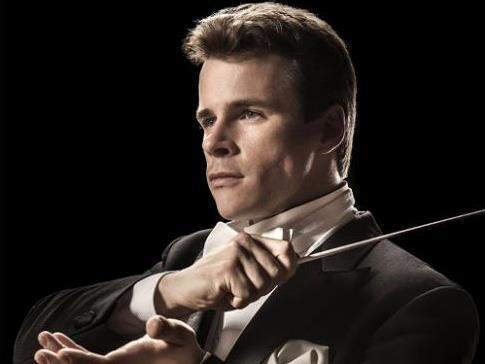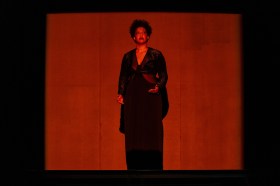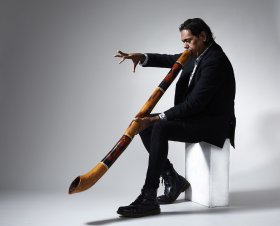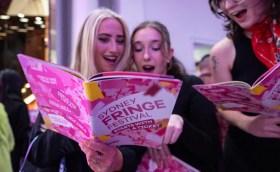Jakub Hrůša, conductor. Photograph via Melbourne Symphony Orchestra.
The Melbourne Symphony Orchestra’s latest program comprised just two works: Mozart’s youthful Symphony No 25 in G minor, K183 and Josef Suk’s infrequently heard Symphony No 2 in C minor, Op 27 ‘Asrael’.
The orchestra’s vibrant account of the Mozart symphony under Jakob Hrůša’s direction was disciplined if somewhat tight. A brisk opening (Allegro con brio) brought out the dramatic Sturm und Drang characteristic of the work. Of special note was the beautifully conveyed and languid oboe playing by associate principal Thomas Hutchinson, even if the four horns were not having such a good night as the challenges of Mozart’s high tessitura met with regular slips and misses. Classical refinement marked the second movement (Andante), with muted strings beautifully shaped and with every note sounding with purpose and authenticity. The woodwind trio section of the Minuetto e trio could have contained more charm and line, though the finale Allegro delighted for its energy and engagement.
It was good to hear Josef Suk’s rarely presented, hour-long second Symphony, Op 27 named after the biblical and Persian-Islamic angel of death, a large-scale composition that expresses the composer’s anguish at the deaths within 14 months of his teacher and mentor Antonín Dvořák and Suk’s wife Otilie, the daughter of Dvořák. Of the work the composer wrote, “The fearsome Angel of Death struck with his scythe a second time…such a misfortune either destroys a man or brings to the surface all the powers dormant in him. Music saved me…”
As in Mahler’s later symphonies, a fate motif, the funeral march, heartfelt nostalgia and a questioning of the meaning of life form the basis for juxtaposing material throughout. With a sustained sense of mortality and despair, Suk’s symphony uses a fascinating late-Romantic tonal language, a mixture of Dvořák-like Czech-inspired idealistic optimism and a darker, richly expressionistic chromaticism. The emotional range is vast and orchestration often most subtle. Deserving special mention were Dale Barltrop’s expressive and perfectly tuned violin solos, each devoted memories of Suk’s late wife, the brilliance of the percussion section throughout and the excellent front two desks of cellos who briefly performed in perfect rapport as a quartet.
Conducting the Suk from memory, in itself an astonishing feat, Czech expert Jakob Hrůša directed the work with acute attention to detail and a firm grasp of its larger architecture. A regular guest conductor with the Melbourne Symphony Orchestra, popular with the orchestra and audience alike, Hrůša’s authority, conviction and enthusiasm for the score delivered a fine and convincing performance of this rarely heard symphony.
Rating: 3.5 stars out of 5
Hrůša Conducts Suk’s Asrael Symphony
Melbourne Symphony Orchestra
Jakob Hrůša, conductor
Hamer Hall, Melbourne Arts Centre
Thursday, 1 September, 2016






